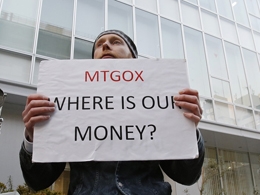
‘Malleability’ attacks not to blame for Mt. Gox’s missing bitcoins, study says
A study by Swiss researchers concludes that transaction malleability attacks could not have accounted for Mt. Gox’s missing millions. Fewer than 400 bitcoins could have been stolen from the Mt. Gox Bitcoin exchange using so-called transaction malleability attacks, according to A Swiss study, far less than the hundreds of thousands of bitcoins the company reported. The findings cast doubt on the failed exchange’s explanation of how it lost nearly half a billion dollars’ worth of the digital currency when it applied for bankruptcy protection in Tokyo on Feb. 28.
Related News
Was a transaction malleability flaw the true cause of over 750,000 BTC belong to Mt. Gox customers going missing? According to a study conducted by Christian Decker and Roger Wattenhofer of ETH Zürich (Swiss Federal Institute of Technology), transaction malleability accounted for significantly less loss than Mt. Gox declared - as little as 386 bitcoins. ...while MtGox claimed to have lost 850,000 bitcoins due to malleability attacks, we merely observed a total of 302,000 bitcoins ever being involved in malleability attacks. Of these, only 1,811 bitcoins were in attacks before MtGox stopped....
The joint Japanese and American government investigation into the whereabouts of supposedly stolen Mt. Gox bitcoins has announced a key discovery. The Japan News, Japan's largest English language newspaper, is reporting that fraud is the cause of the "disappearance of 99% of Mt. Gox bitcoins." According to sources in the Metropolitan Police Department (MPD), only about 7,000 Gox bitcoins were lost due to cyber-attacks. The remaining 99% of the missing 650,000 bitcoins is "highly suspected" of disappearing during a period when Mt. Gox was being fraudulently run by an unknown party. Also....
Mt Gox had been depleted of most of its bitcoin by 2013 according to a new report from Wizsec, the Tokyo based bitcoin security firm, which has been conducting an ongoing unofficial investigation into Mt Gox’s collapse. The theft had been ongoing since 2011 and many of the missing bitcoins were stolen straight out of Mt Gox’s hot wallet. A significant amount of the stolen bitcoins were deposited at various exchanges like BTC-e, Bitcoinica, Mt Gox itself, and other not yet identified wallets, and subsequently sold for cash. This led Mt Gox to be operating “knowingly or unknowingly” at....
The Bitcoin community has always speculated that Mt. Gox was insolvent before its collapse in early 2014. A new study done by WizSec now confirms this speculation. The study reports that MtGox was insolvent long before it collapsed, with thieves were routinely stealing bitcoin from the exchange’s reserves. The WizSec study also confirms that the majority of the missing Gox bitcoin was stolen by someone on the inside — echoing a report from The Yomiuri Shimbun that the coins were lost due to fraud rather than an external hack. The report cited sources at the Japanese Metropolitan Police....
Japanese newspaper readers began the year with bitcoin as front-page news. The disappearance of 99% of the bitcoins missing from Mt Gox can be blamed on internal system manipulation and not any external attack, a major Japanese newspaper has claimed. Citing an unnamed source connected to the ongoing police investigation, Japan's Yomiuri Shimbun newspaper led with the story on the front page of its New Year's Day edition. Only 7,000 BTC, or 1% of the total 650,000 missing, could be attributed to hacking attacks from outside the company, it said. Yomiuri did not elaborate further on the....





